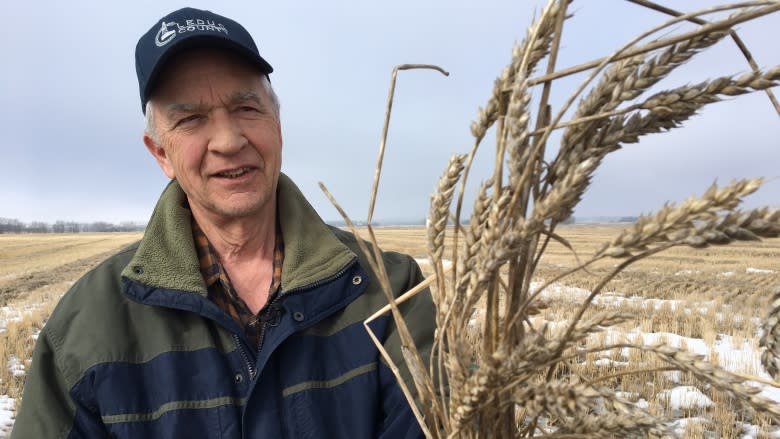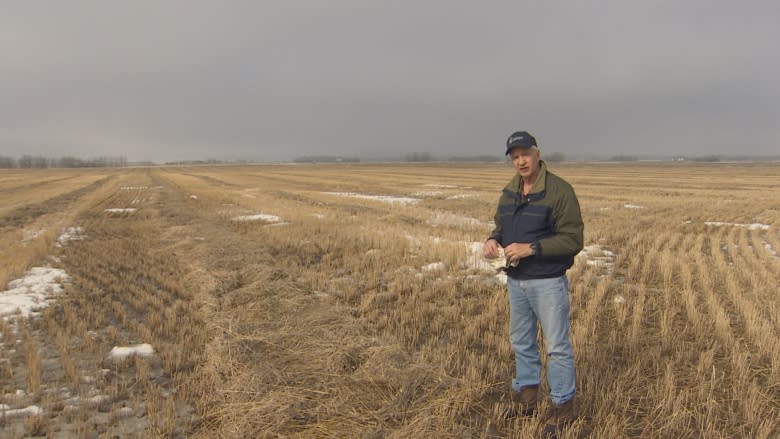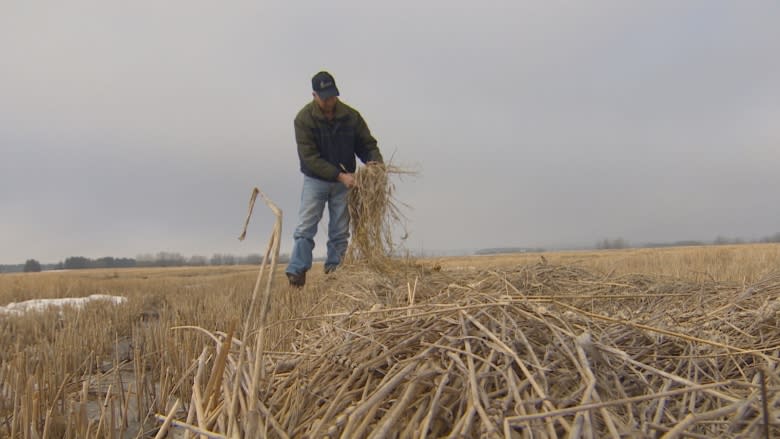Farmers prepare to burn crops in Leduc County after fall harvest halted
It might be a smoky spring in Leduc County.
Crops in this area south of Edmonton are among the more than 400,000 hectares of Alberta crops left damaged by rain and snow after winter's early arrival last fall.
Before seeding this year's crops, these damaged ones have to go — and when the snow finally melts in Leduc County, farmers who want to burn these remaining crops will have to apply for a permit.
Some of them see that as a last resort.
Trudging through the mud and ice that still litters his field, Bill Wiesener, 74, inspects bunches of trimmed wheat.
Like many farmers farmers in the Leduc area, he had every intention of harvesting all of his canola and wheat crops last fall. But his harvest, like so many others, was stifled by rain and an early and recurring snowfall.
"We got delayed and delayed and delayed to the point where eventually, it's sitting out here waiting to be combined in the spring," Wiesener said.
The Leduc County fire department expects many farmers are in a similar situation.
"In the past, we've never encouraged burning of crops," said Tylor Bennett, deputy chief of Leduc County Fire Services.
"There's other ways to manage that, but because of the large volume of residue left in the fields, we've determined that's probably going to be more of a likely option."
The fire department is granting burn permits to landowners, but only after an inspection. The permit comes with strict rules, like permit holders having to place warning signs on nearby highways to warn drivers of smoke.
"We want to avoid any fires getting out of control," Bennett said. Some of the requirements that we've put in place are the sizes of those windrows. We don't want to see farmers burning a whole field, obviously, so it's going to be a little harder to contain."
In Dec. 2015, six people were injured in a multiple vehicle collision in Leduc County. RCMP said smoke from a controlled burn in a farmer's field was one of the factors in the crash.
"If you see smoke in the distance, make sure your headlights and tail lights are on," said Rick Lang, manager of novice operations at Alberta Motor Association.
"Your daytime running lights are not enough. If there's traffic close behind you, start to slow down early."
On his farm in Leduc County, Wiesener is planning to combine the canola and wheat crops remaining on his fields once the snow melts and the plants dry out.
Burning the remaining crops is a last resort, he said.
"Highway 2 isn't far away," Wiesener said.
"We'd have a situation where we're creating a lot of smoke and that's damaging the environment and creating traffic hazards."
"We're hoping that ... the weather will cooperate and we'll be able to combine the crops. The debris that's left over from the combine, we'll be able to work it in and plant over it. That's my optimistic outlook."
Travismcewan@cbc.ca
@Travismcewancbc




